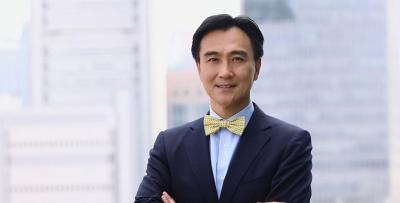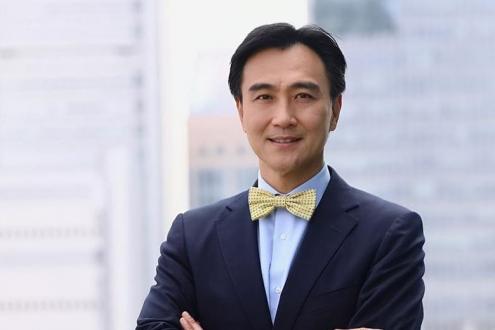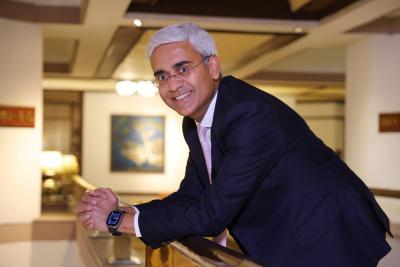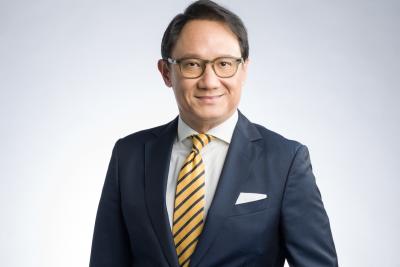EFG’s Asia Pacific Head Surveys the Great Wealth Management Opportunities Across the Region

Albert Chiu of EFG International
Sep 23, 2022
EFG International is a top ten private bank in Switzerland, sitting between the global brands and some of the smaller, more boutique names. The bank has not only been enjoying robust organic growth, but also expanding through acquisitions; EFG made a roughly USD1 billion transformative acquisition in 2016 in Europe, and for the Asia Pacific business another major deal in Australia in 2019, buying Shaw and Partners, a leading wealth management firm. EFG and its leaders in Asia Pacific feature regularly in Hubbis events and in our pages, and Hubbis recently had a catch-up conversation with Albert Chiu, Executive Chairman for the Asia Pacific Region, to learn more of the bank’s recent progress and the strategy for the foreseeable future. EFG’s history dates back to 1995, since when the bank has built AUM of circa CHF 180 billion (as at the end of 2021) and today has a presence in close to 40 locations worldwide. Today, Albert reports that EFG is weathering the global volatilities and anxieties well, and is well positioned to deliver more growth, spearheaded by the bank’s entrepreneurial culture, and its front-line of ‘Client Relationship Officers (CROs), who strive to act as true partners to their clients.
Albert opens the discussion by noting that a key challenge for EFG and the wealth industry as a whole in Asia is to develop younger talent that will be able to handle the next phases of dynamic growth in the region, and also the next waves of clients, who are of course younger and with different expectations from the founder patriarch type clients the private banking industry in Asia has relied upon for the past two or three decades.
Adapting to the world ahead
“Not only is the tech industry minting more private wealth in Asia and at a much younger age than in the traditional industry segments, but the older generations, as we all know, are handing over literally trillions of wealth to the second and third generations,” Albert reports. “We need bankers, or CROs as EFG calls them, who can handle such clients. And we need to ensure they have the experience and the perspectives to help our clients of all ages manage the many vacillations in the global markets and as new and unforeseen events arise.”
He explains that, in this regard, he sees a relatively new phenomenon, in the form of bankers in their 30s who have moved from China and based themselves in Hong Kong, in Singapore and to some extent in Australia to learn the private banking trade.
Leveraging talent
“These individuals come to these markets having studied at university across the globe and are then coming back to Asia Pacific to participate in the growth the region offers,” he explains. “EFG has hired quite a number of such bankers in recent years, helping us serve the newer types of clients and work in new areas of growth, such as digital assets.”
He explains that EFG is keen on seeing this type of trend accelerate in the years ahead.
“The bankers are gradually getting younger, and EFG, for example, is focusing intently on training programmes, nurturing these younger talents in different areas of the bank to rapidly boost their experience of all aspects of wealth management,” he reports. “It is happening, but I would like to see even more and faster progress in this regard.”
A diversified business
EFG’s wealth management offering today encompasses investment solutions (discretionary mandates and advisory mandates), wealth solutions (from corporate finance or succession planning to retirement provision) and financing solutions (including a range of financing facilities to construct investment portfolios).
EFG’s group-wide Investment Solutions platform leads all asset management activities and provides global guidance and coordination on advisory and product management, while a global diversified trading business serves sophisticated private and institutional clients and external asset managers.
The ‘partnership’ model
As to EFG’s differentiation, Albert points to the role of the CRO. “We do not always push for annual revenue targets for our CROs, and each CRO can develop with his or her client throughout the years ahead, for example if they move from HNW to UHNW type clients, so there is an entire lifecycle relationship available between our bankers and their clients,” he reports. “This partnership model gives the bankers real motivation, but without being hamstrung by specific target; essentially they are free to build their business with in EFG in the ways they consider best, within the regulatory/compliance frameworks.”
He also notes that EFG is also a pure-play Swiss private bank, with a very strong capital base. “Moreover, we deliver an open architecture platform,” he added, “with a very wide range of products and services. These types of approaches have helped us build close to USD33 billion (as at the end of 2021) in AUM in Asia Pacific, serviced by roughly 260 CROs, of whom around 160 are with the Shaw and Partners operations in Australia, and close to 100 between Hong Kong and Singapore.”
Greater China’s appeals
Albert points to Greater China as a key growth market, even today and despite the ravages of the pandemic and other issues.
“There is plenty of offshore assets owned by successful Mainland businessmen, and plenty of offshore IPO and other capital raising activity, much of it through Hong Kong and Singapore nowadays,” he observes. “Moreover, despite the well-versed problems China itself has been facing, we see considerable growth ahead for the Greater Bay Area, which will be a very big opportunity for Hong Kong’s wealth management industry, although there are access and other key issues that need to be resolved before Hong Kong’s financial institutions can benefit fully from these developments.”
Focus on the EAMs
And he reminds us of the major firm-wide commitment to the independent wealth segment. “The type of freedom we give our CROs and the open architecture platform we offer, and our very comprehensive suite of products and services have helped us connect very well with the independent wealth management firms,” he reports. “We have built a big client base amongst the EAMs in Asia, and this strongly growing sector remains a core focus for the bank.”
Key Priorities
Albert points to the most recent EFG earnings announcement in July. “Despite a difficult phase for global markets and geopolitical events, we managed to raise operating profits some 40% at the same time as bringing down our cost income ratio towards our target of 75%,” he reports. “And the first priority for the next year or so is to continue to improve our sustainable profitability, to keep building on the growth and improvements of the past several years, improving our cost income ratio and making sure we have positive net new assets. At the same time, the Bank will continue to drive Sustainability and Diversity.”
Albert says the second mission is to focus on the means to achieve that continuing momentum. “We discussed talent, and we agree that there is not the depth in the market from which to hire, so as I explained we need to build talent within,” he reports. “We are of course hiring selectively, but we will also continue to search for the right acquisitions and partnerships, both in terms of new strategic deals and bolt-on acquisitions.”
He remarks that EFG will also explore the right opportunities for building an onshore presence, as it has done successfully in Australia, leveraging the 2019/2020 Shaw & Partners purchase. “China is the big one, and we are looking at the right ways to approach that market from an onshore perspective,” he explains. “And other onshore markets such as Indonesia or Thailand have considerable appeals and great potential.”
The third priority is to improve the platform.
“The coming age of private banking will be more digital, so globally and regionally we need to invest more in our technology and digital solutions,” Albert reports.
He adds one more core objective, namely, to improve the connectivity between Singapore, Hong Kong, and Australia, especially as he notes with the migration of very wealthy clients from Greater China to Australia in the past few years since the pandemic struck. “We are working on achieving more synergy between these three locations, there are many logical avenues for building these relationships and leveraging our capabilities in each market and between these jurisdictions.”
Supportive and empathetic
Albert closes the conversation by remarking that many client portfolios are down in the past six to nine months, and with rising interest rates and continuing global uncertainties, clients will naturally stay defensive. “A key mission for us it to really help our clients manage their way through this mini crisis,” he says. “We need to help guide them and to do that, we really need to make sure we understand their situations and their hopes for the future.”
His final word is that having worked with EFG for more than two decades, he had witnessed the many ups and downs globally and within Asia, but all through those years, the Asia Pacific growth momentum has continued to help propel the wealth industry in the region. “We will come through this current downturn, and I have no doubt that growth will soon be very robust again. Asia’s vigour and optimism are irrepressible and EFG has been building a regionwide platform to participate fully in that dynamism.”
Getting Personal
Albert is a Hong Kong Chinese citizen, born and bred in the city. He has two sons aged 22 and 18, and says he considers himself a devoted family man. He has long had a love of sport, is a self-avowed Manchester United supporter, and even used to be a FIFA-accredited soccer referee from 1990 to 2005, traveling the world on behalf of Hong Kong to referee matches. “I still keep fit to this day, despite my rather dodgy knees,” he quips.
He notes that he has also positioned EFG to contribute to the community, with a focus on individuals and sports. Some 13 plus years ago, EFG started sponsoring home-grown athletes in Hong Kong, including since she was 13 a young golfer named Tiffany Chan, who has since played in two Olympic Games and is now on the LPGA Tour in the US,” he reports. “We have a new 14-year-old golfer we are helping named Arianna Lau and we also work with the Hong Kong Tennis Association to support younger tennis players such as Eudice Chong and Cody Wong, now Hong Kong numbers one and two.”
He explains that EFG set up a foundation called the EFG Hong Kong Young Athletes Foundation, raising money through EFG’s connections and staff, and the concept has now expanded to include Singapore, where the bank is helping young golfers and where the bank is now sponsor of the EFG Singapore Junior Masters tournament, to which golfers aged under 19 from across the region are invited.
“This is all core to our culture and proposition,” Albert explains. “And we are also helping young talent outside of sports, for example supporting younger jazz musicians in Singapore.”
Albert closes his comments by noting that another element of his past had helped him overcome some of the difficulties wrought by the pandemic. “I am also a former British Army officer, having graduated from Sandhurst as a commissioned officer in 1989,” he reports. “Perhaps that training has helped me bear the 138 days of quarantine I have had to go through since the pandemic hit, as I have tried to continue my regional role for EFG. We have all come through this period with resilience and with imagination. We are all perhaps better positioned and prepared for future crises, whatever they might be.”

Executive Chairman, Asia Pacific at EFG International

More from Albert Chiu, EFG International
Latest Articles






